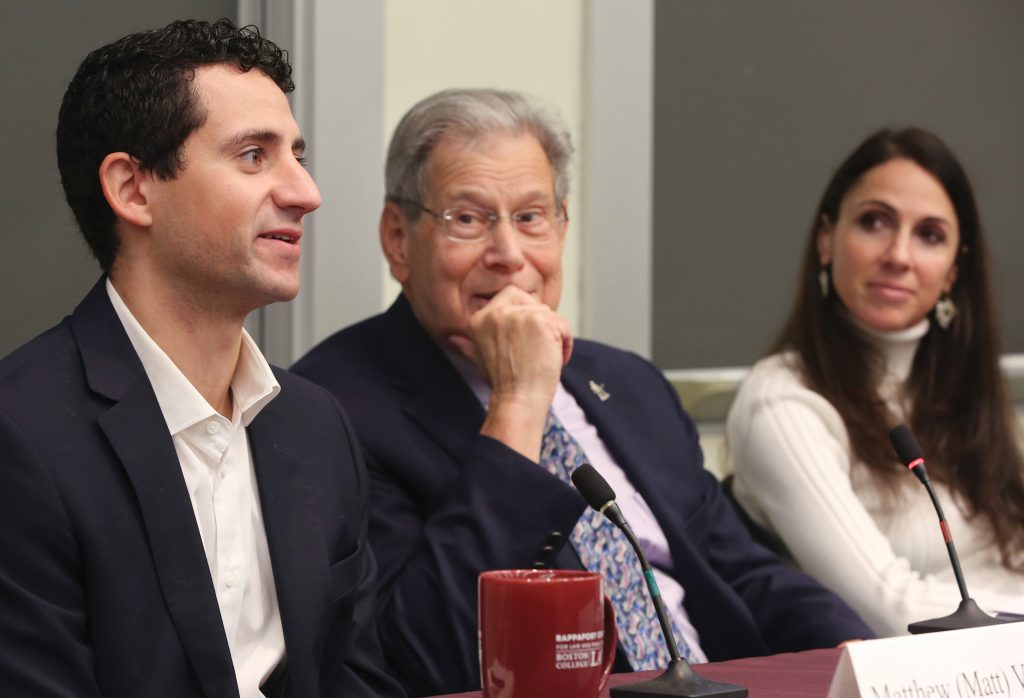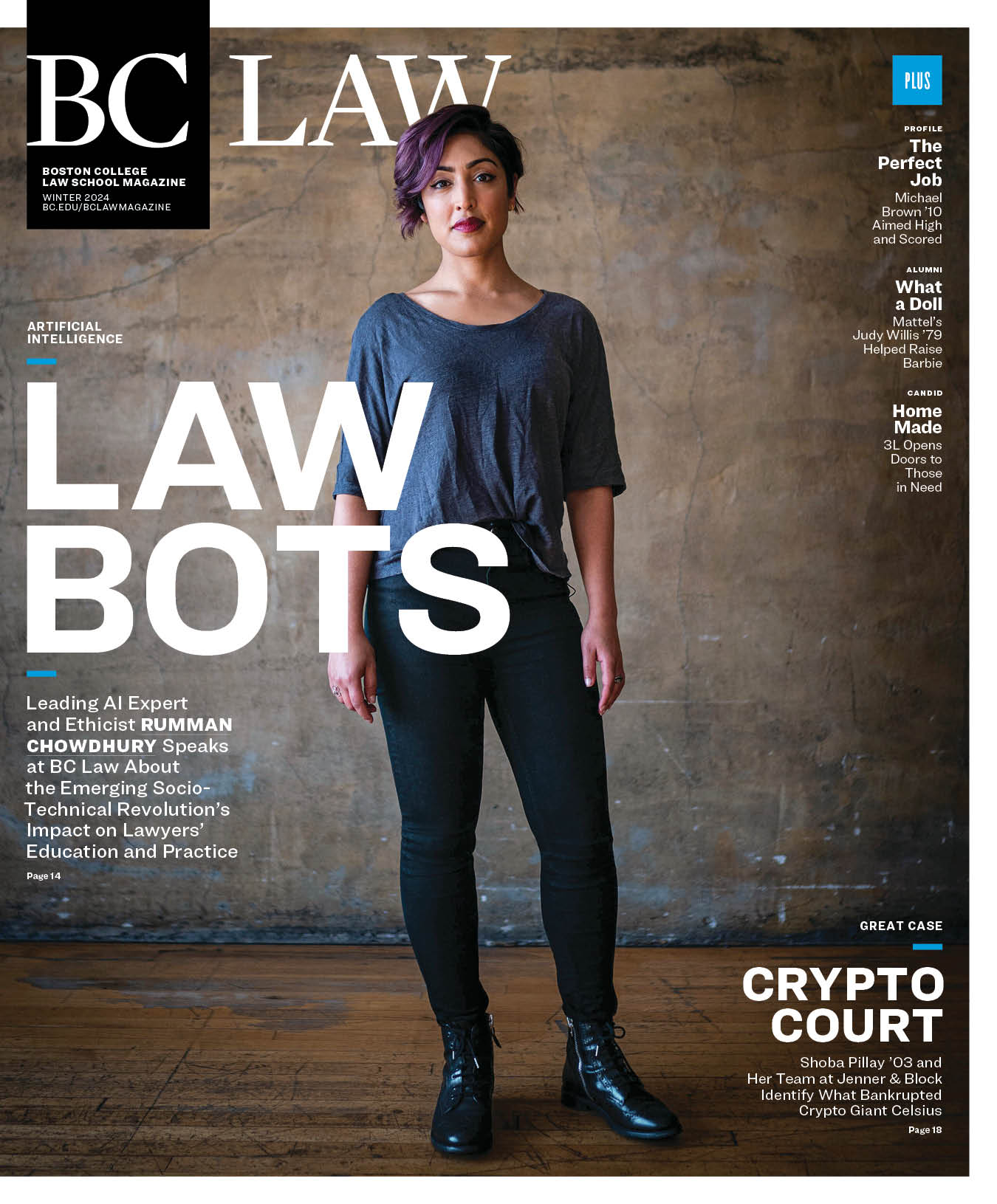Transparency, or the lack thereof, in the state’s legislature was the topic of the November Rappaport Center panel “Evaluating Transparency in Massachusetts Government.” With Massachusetts being one of the least transparent states in terms of public records laws, the question atop everyone’s mind was why so much information is safeguarded and how to make it more accessible.
Samantha Gross, a political reporter for The Boston Globe, moderated the discussion. Joining her were Diana DiZoglio, Massachusetts state auditor; Jay Kaufman, founding president of Beacon Leadership Collaborative and former state representative of the Massachusetts House of Representatives; and Matthew Victor ’22, corporate attorney and the founder and project director of MAPLE (MA Platform for Legislative Engagement).
The panel began with a conversation about Massachusetts’ current state of transparency. Kaufman observed how during his service, advancing transparency was difficult in a culture where sticking to the status quo was the norm. Legislators often had to compromise and make choices about when to speak up about their beliefs. DiZoglio added that many elected officials are well-intentioned, but fear retaliation for voting their consciences.
Victor voiced a similar opinion, sharing how he was unable to find much information about the records of current state representatives when heading to the polls for the first time. “We need information to decide whether our elected officials are performing well on our behalf,” he said.
“Transparency is key to getting that information, and that’s the lifeblood of democracy.” In fact, one of Victor’s goals in creating MAPLE, which allows anyone to view and submit testimony to the legislature, was to create a public archive of public testimony and foster a space for people to learn about legislation.
“We need information to decide whether our elected officials are performing well on our behalf. Transparency is key to getting that information, and that’s the lifeblood of democracy.”
Matthew Victor ’22, founder and project director of MAPLE (MA Platform for Legislative Engagement)
Even within the state legislature, it is difficult to know what is happening. A company called InstaTrac has capitalized on this void, offering a subscription-based platform that tracks legislation for state government officials. “In a well-functioning legislature, there would be no InstaTrac because most legislatures around the country have a services bureau that does exactly what InstaTrac is doing for profit,” said Kaufman. “[The] legislature will essentially monitor itself and report and then we the people can take the information and know how to vote.”
DiZoglio agreed to the need for an online system to be developed that informs the public about the status of bills and allows for access to testimonies and voting results. She suggested that state representatives would not need to use systems like InstaTrac if the Massachusetts Legislature adopted more transparent practices, similar to those of other states that make legislative information easily accessible. Victor advocated for the possibility of leveraging technology to create new channels for disseminating information.
The panelists emphasized the significance of this moment in time for voters and legislators to enact change. “My hope is that legislators and potential legislators have a better understanding of what leadership really involves. My hope is to empower them, but, more significantly, empower you [the audience primarily composed of law students] so that when you challenge them, you will win and be more effective,” said Kaufman.
DiZoglio added, “There needs to be a cultural shift up on Beacon Hill and that needs to come from the ground up.” As Victor put it, “We need to be the leaders and set an example of what quality democracy looks like. If there’s a state that can solve this and can be an example for other states, it’s us.”



